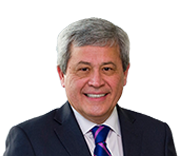Breast cancer can often be cured with a combination of surgery, hormonal therapy, chemotherapy, and radiation. But some breast cancers are resistant to treatment from the outset, or develop drug resistance over time.
Dr. Carlos L. Arteaga, M.D., an internationally renowned breast cancer researcher and physician, is hoping to improve breast-cancer patients’ chances of beating the disease for good. His research focuses on identifying the causes of drug resistance and employing combination therapies to circumvent it.
Dr. Arteaga was recruited to the University of Texas Southwestern Medical Center, with the help of a CPRIT Established Investigator Award, as Director of the Harold C. Simmons Comprehensive Cancer Center. Previously, he spent 28 years at Vanderbilt University Medical Center, where he was the director of the Center for Cancer Targeted Therapies (C2T2) and the Breast Cancer Program of the Vanderbilt-Ingram Cancer Center.
Read More
Breast cancer can often be cured with a combination of surgery, hormonal therapy, chemotherapy, and radiation. But some breast cancers are resistant to treatment from the outset, or develop drug resistance over time.
Dr. Carlos L. Arteaga, M.D., an internationally renowned breast cancer researcher and physician, is hoping to improve breast-cancer patients’ chances of beating the disease for good. His research focuses on identifying the causes of drug resistance and employing combination therapies to circumvent it.
Dr. Arteaga was recruited to the University of Texas Southwestern Medical Center, with the help of a CPRIT Established Investigator Award, as Director of the Harold C. Simmons Comprehensive Cancer Center. Previously, he spent 28 years at Vanderbilt University Medical Center, where he was the director of the Center for Cancer Targeted Therapies (C2T2) and the Breast Cancer Program of the Vanderbilt-Ingram Cancer Center.
He is a recognized expert in the field of breast cancer research, and has participated in the development of several combination therapies for breast cancer that are now the standard of care in the field.
One of Dr. Arteaga’s research programs concerns estrogen-receptor–positive (ER+) breast cancers and their response to a new class of drugs, called CDK4/6 inhibitors. Most patients initially respond well to a combination of CDK4/6 inhibitors and anti-estrogen drugs.
“These drugs are just amazing,” says Dr. Arteaga. “In patients with advanced ER+ breast cancer, they induce a median progression-free survival time of about 2 years.” But almost invariably, the metastatic disease eventually returns. Dr. Arteaga hopes to find out why the tumors develop resistance to the CDK4/6 drugs.
In collaboration with scientists and clinical investigators at UTSW, he plans to take biopsies from resistant tumors and grow them into organoids—collections of cells that self-assemble and reproduce, thus allowing drug-resistant breast tumor cells to be studied in the laboratory. He’ll conduct tumor gene-sequencing, imaging, and drug-sensitivity studies, among others, to try to find out what these resistant tumors have in common, and eventually discover a way to treat them.
Dr. Arteaga’s research has led to a number of clinical trials that are informed by his laboratory work. It’s emblematic of his “bench-to-bedside” approach to cancer research and treatment that he brings to UT Southwestern.
“This is an institution that has an outstanding basic science research base, which is essential to generate the best translational research in cancer,” he says. “Strong basic science provides the best ideas that can be applied to our understanding of cancer and eventually its management.”
He credits CPRIT as one of the reasons that contributed to his enthusiasm to move to Texas. “At a time in which cancer progress and momentum has never been better, our funding climate has some clouds on the horizon. And CPRIT shows that institutions outside the federal government can step in,” he says. “It’s an example of how the citizens of a state can contribute to research in cancer.”
Dr. Arteaga obtained his undergraduate and medical degrees from the University of Guayaquil, Ecuador, and came to the United States for an internal medicine residency at Emory University. He trained in oncology at the University of Texas Health Science Center in San Antonio prior to joining the faculty at Vanderbilt in 1989. He directed Vanderbilt’s NCI-funded Specialized Program of Research Excellence (SPORE) in Breast Cancer for 16 years.
Read Less

